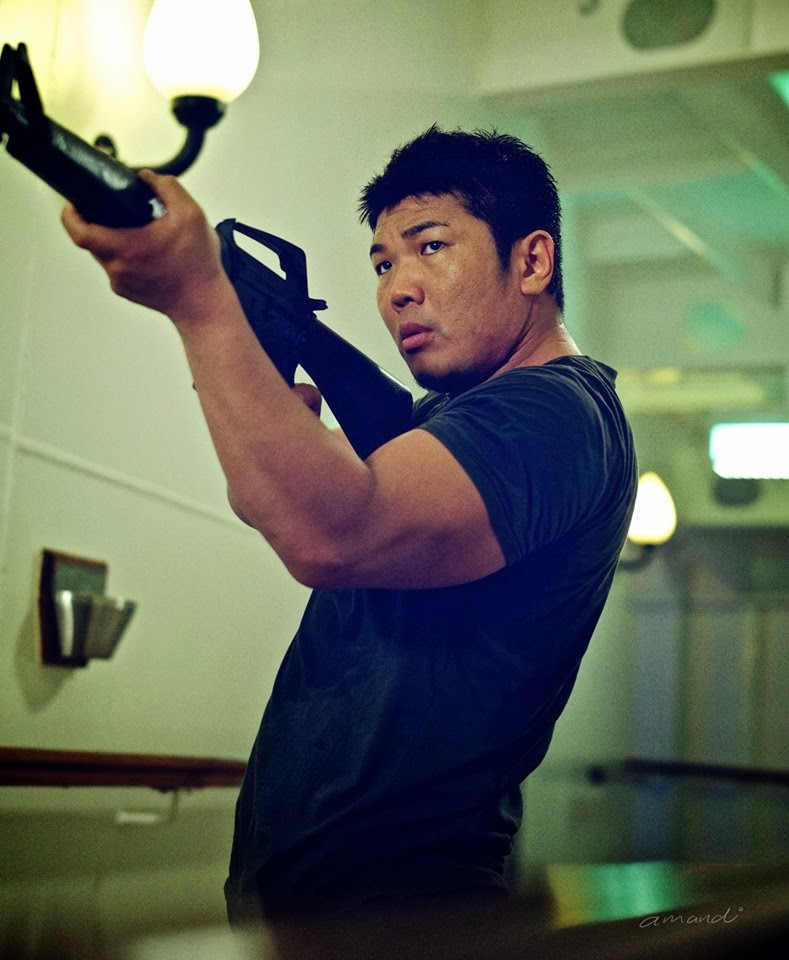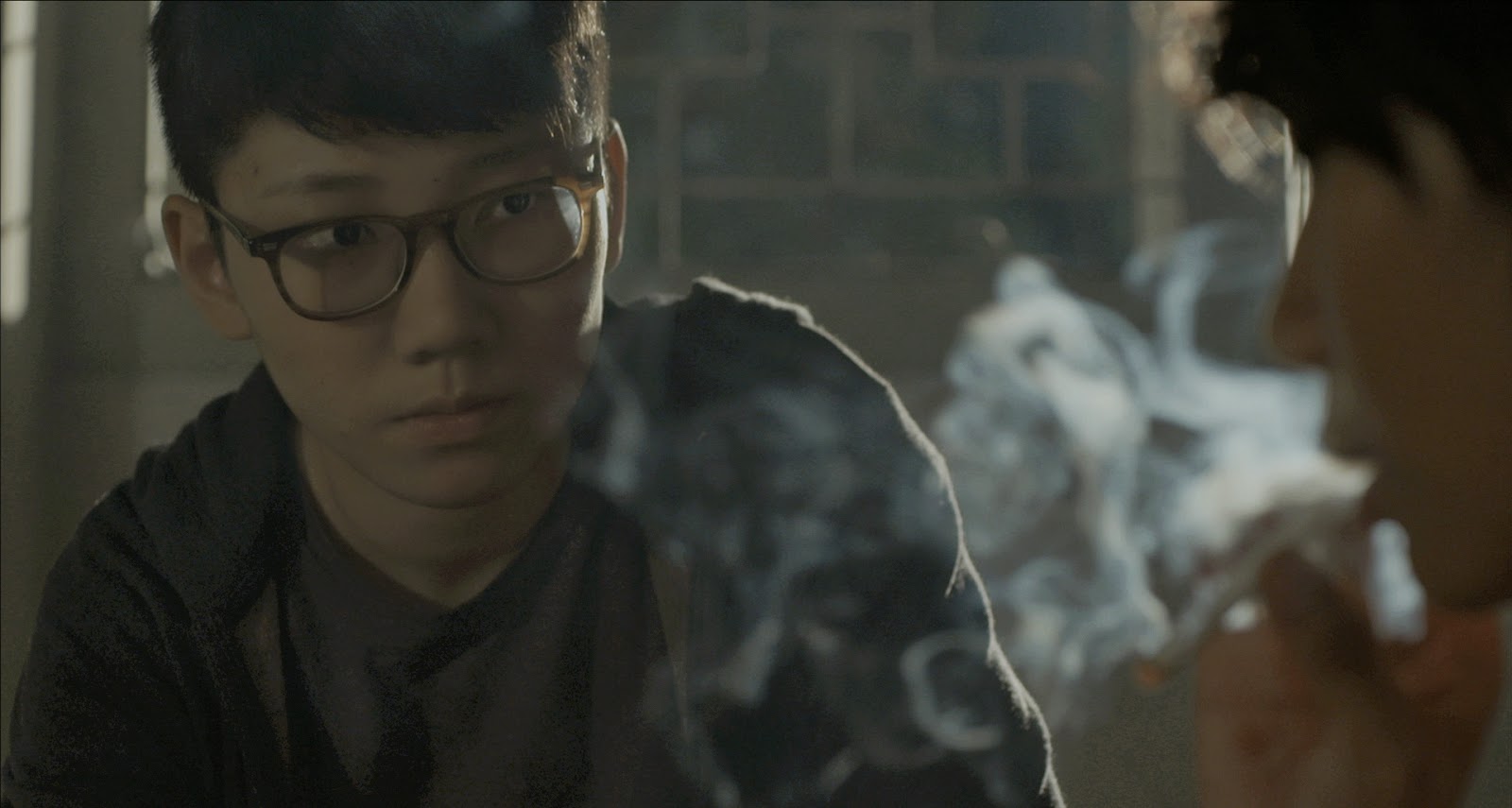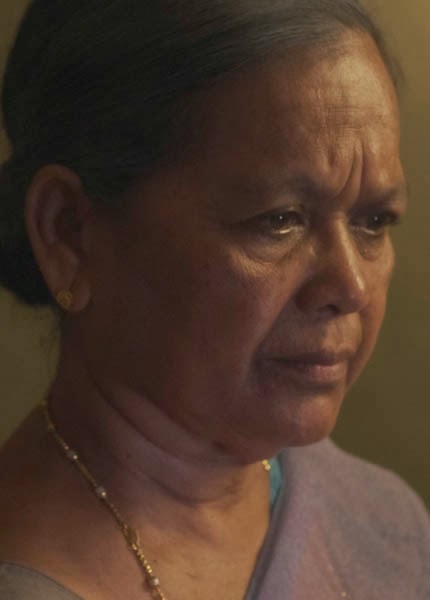When news first broke that veteran actor Tay Ping Hui was going to make his directorial debut, SINdie was immediately interested to follow this story and hence we were absolutely delighted when he very kindly agreed to meet up with us for a chat.
'Meeting the man'
![]()
Cut to a rather sunny late morning, in a quaint shophouse in Chinatown, I got the great opportunity to sit down with him over a strong cup of coffee. With immediate ease, the conversation flowed and it was just like catching up with an old friend…
Ivan Choong (IC): I wanted to touch on the experience, do you see huge differences in the kinds of things audiences would want to see – something more commercial or more artistic?
Tay Ping Hui (TPH): I would say yes. I think perhaps in the past Singapore has been very clearly defined by the art house film but yet there is an extreme other end. So there has always been two sides to the spectrum – either you are very commercial (when you achieve a certain amount of box office success) but the quality and production value, the complexity of the plot and story, script itself and filming technique is very simplistic, or you have the Eric Khoo(s), who are very arthouse - high production value, aesthetically beautiful, post production done very well - but somehow it just doesn’t cut it here. Nobody really watches it because it is too arthouse. Saying that, while the two have always been separated, we do at times have a Kelvin Tong - who came into the market and he is kind of straddling both fields. I love ‘Eating Air’, I think it’s a very well directed movie and I love the storyline, because I’m a closet Ah Beng (laughing) the story between the Ah Boy and Ah Girl. Its really a dilemma for a filmmaker in Singapore because you want to go arthouse and may not have success, or you want to go commercial. However, sometimes as a film maker if you are not into that kind of film, it invades you senses. It offends your senses, for a lack of a better word - thats always been a dilemma for a filmmaker.
![]()
IC: That brings me to pull the whole focus back to your experience, where do you see yourself in that spectrum?
TPH: I come from a very interesting background as most of the directors in Singapore are not actually actors and so I would say I’ve had my 10,000 hours of training as an actor. Hence, with regards to the microeconomics of acting, the analysis of character(s), the development of character(s), delving into the complexity of character(s), I think I have the required experience. (I’ve done this a long time already!). I don’t tell people I practice a particular acting style but I have developed a system of my own to do that. So I think for me, it’s a very interesting perspective because when I look at the script, I start from the perspective of the actor and then I move on to the macroeconomics. I think for a lot of directors, what they do is they actually look at the macroeconomics, and if they have the time, then they go into the microeconomics of the actors and hence they let the actors pretty much do what they want. I try to balance the two - as an actor, I understand sometimes our individuality has to be sacrificed for the greater good because you might want to do things in a certain way but if the greater environment or the greater system, the macroeconomics which is the script or the development, does not allow you to do it then as an actor you have to respect the greater environment. So for me, right now as an actor becoming a director, I can try and balance the two, I can make the actors feel like they able to express themselves in a way that they want to but yet absorbing them into my greater system. So I think I have a little bit of advantage in that sense.
IC: I want to draw that out a bit more - you picked actors who are not superstars or they do not have your level of experience. Was that intentional?
TPH: There are two reasons to it - one if I have superstars, I will not have any budget left. Actors are worth every penny if they really add value to the production – the kind of actors that I think deserve every penny that they get are those that translate a two dimensional script into a three dimensional character, because perhaps in that scene, you are happy – but how are you happy? How happy are you? What stage are you happier than earlier? - and so it is really up to the actors to create that and then the director will feed on that. So for that reason I truly believe that if I had really experienced actors that I wanted I would really run out budget.
Secondly, my priority for this movie is that it is based on basketball. I used to play competitive basketball so for me authenticity is very important. You can teach a guy to act but if you want him to look like a professional basket baller, it would take more than one month of training boot camp. For me the priority was for basketball, so I made an executive decision that I would want to cast basket ballers whom I hope to teach acting rather than actors who cannot play basketball and we have to train them.
There are certainly actors who can play basketball but they did not fit into the characters that I want and therefore I would say 90% of all of them are basket ballers first, sportsmen first, and only one particular actor, which is Ian Fang, is a professional actor who plays decent basketball. I felt that he would fit a particular character that I needed to have some emotional complexity perfectly, and hence that is why I casted him.
IC: I’ve seen the trailer, and the basketball sequences are very realistic - I believe you took a lot of pains to get that right?
TPH: It was difficult because I think most first time directors start out shooting wen xi– love or romance themes but action sequences for the choreography of sports is an entirely different story. I had so many sleepless nights trying to choreograph the shots because you only have a certain number of hours, and there are a fixed number of shots that you need to take - you need to prioritize them and every shot is important so you need to plan! So essentially I really had to get down to it! Not only did I have to take care of my cast, some of whom were acting for the first time, but as a first time director I am shooting a first ever basketball movie in Singapore, so its really coming at me from different angles. My friends and my wife have said that I have never looked so stressed in my life! But I decided to take on the challenge and while it was very difficult, it boiled down to planning and because I have a very good relationship with my Directory of Photography (DOP), we could sit down beforehand and I could tell him what I wanted. I did not want any of those pseudo realistic basketball shows – where one could jump from mid court and slam dunk, I didn’t want that – I wanted it to be realistic, I wanted it to be motivating - I wanted perhaps a guy who used to play basketball but had not played for maybe the past 3 to 4 years, who would after watching the movie think I should take it up again!
![]()
IC: And interestingly, it is not just about basketball because there is also a story - there is an underlying heartfelt story. Perhaps you could tell us more about this?
TPH: A lot of people ask me “is this a basketball movie?” and I would say it is a movie that is based on basketball but it is all about the basket ballers. Basketball is a needle, a thread that links everything together but essentially it is about the boys.
The story is told through the eyes of a boy (Jun Hui) - he is in secondary school, he is the star of the team, the captain and he has always been ‘the man’! One day in comes this two meter tall import (Chen Hang nicknamed ‘Yao Ming’) from China because the coach thought that he would be a great addition to the play since at that age, nobody is of that height. So he comes in and dominates everything and suddenly everybody prefers him instead! Act One begins with the natural rejection of Chen Hang and it ends with them doing something to this boy and them winning the nationals on their own merit. Jun Hui (the protagonist) then thinks to himself that this is the end of it and I don’t have to deal with it anymore. Ironically his father is the manager of a professional basketball team – so one day, Jun Hui was invited to watch some of the new imports and Chen Hang is part of them and instead of one guy, he is now looking at 10 foreign imports who will easily one day take over his position in the national team, something he had always taken for granted. The focus then moves to the basketball team itself as each individual player has their own backstory on why they move to Singapore and we explore this motivation.
As we move along the tone of the movie gets more and more serious and I try to explore the system of foreign imports in terms of sports – is it a viable system? I try to explore the rational and motivation of why they are here and perhaps we can have a little more empathy so that at the end of the day why can’t we all get along.
It’s a real coming of age story and there are certain points I hope will touch the audience.
IC: That brings us to the next question, which is what do you want your audience to take away?
TPH: I think the first question when I look at a script, before I do anything whether as an actor or a director, is that I always ask one question which is ‘what do I want the audience to feel?’ because I think when a lot of people go to the movies they may not really remember the small details or the development of the plot, but I think they will remember how they feel - the feeling they take away when the credits are running or when they are walking out. I think at the end of the day I want the audience to leave the cinema feeling a little warmth in their hearts, there is hope – all we really need to do is perhaps open a little door, be a little bit more accommodating to everyone and understand their perspective. Additionally perhaps when they are driving home, they would really think about the system and if the system is working?
IC: When you started the film, were all these aspects in place or did you discover it during filming?
TPH: It’s a journey - initially the movie came to be because the Executive Producer and myself were in the same projects consecutively. One consistent theme from our many side conversations was that he kept sharing this idea of a basketball movie with me, asking my opinion, as he knows that I used to play competitive basketball. We talked about possibilities and one day he looked at me and asked if I would like to direct it – I thought he was joking – he said I agreed within 10 seconds and I did as I thought of it as a challenge but he was serious! We started brainstorming on the script and storyline, got a scriptwriter who provided a skeleton that we worked on. Once we had the final script, I sat down and had to decide on how I wanted it to look and feel. Every single minute decision had to be made – I always say there are five people coming to me, to make five different decisions all at the same time! It was a long arduous journey.
IC: Do you feel changed from the experience? Either as an actor or as a director, or as a person?
TPH: Definitely, I think even to the day that I ended filming, there were still a lot of doubts about myself – have I done everything that I could have done? Have I given my best? Am I going to succeed? Through the whole process, the feedback and opinions have been quite positive so I think that has reinforced my own believe in myself - that we should be constantly building ourselves. Ever since day one as an actor, I’ve always been interested in the technical side of things – bugging the lighting, DOP, sound guy – because I feel that is the best way to learn. By doing that, I by-passed the theoretical part and went straight to work experience. They shared little tricks and I realized while filming the movie that I had been actually secretly storing all this information and it all came out. I think my curiosity beyond acting all these years has truly helped.
IC: Do you think this project just came at the right time and that perhaps you have always wanted to direct?
TPH: I’ve always wanted to direct because I think as an actor you have a certain perspective but for me, an actor should always respect and never ever override a director. We can discuss about it but even for a first time director, I would listen to you because you are a director. As a director, I am control freak, so it was perfect! Directing was something that I wanted to do as it is really an expansion of what I have been doing all these years. It has been a really great experience in which I have been able to draw from my past experience as an actor. There is a chinese saying - yǎng bīng qiān rì yòng zai yì shí - you raise an army and you feed them for a thousand days only for that one moment of charging. So I think unconsciously everything came together. I’m very lucky to have the opportunity to be exposed to all these different facets of what a director should have so I’ve fulfilled what I wanted to do. It was very enjoyable.
IC: You’ve mentioned how acting experience has helped in directing but I am also interested to find out if this journey has affected or changed your view as an actor?
TPH: Certainly, because I think as you get better at something, you sometimes forget about the basics – the rawest of emotions. Not get too technical. I’m 90% objectivity and 10% subjective – being very OCD, I approach acting from a very technical aspect (timing, rhythm) and from that I enhance with emotions. In the course of this movie, I had to conduct a one month acting class with the newcomers hence I was constantly revisiting all the basics. I think in some ways, it reinforced some of the basics of acting – it was like a refresher course. It puts things in perspective and hence I think my fundamentals are stronger after the movie. Yes, it has benefitted me as an actor as I think I have learnt to tap more into the rawest of emotions.
IC: One thing that intrigues me is the title ‘Meeting the Giant?
TPH: It’s metaphorical and literal – its about the first time the young protagonist is meeting this tall import, the feeling is that of meeting this huge giant who is coming here to devour everything! On the other perspective it is about Singapore and China – its Singapore meeting the power of China.
The gala will be on the 9th of June 2014 and we will probably be screening in Singapore, China and Malaysia simultaneously. This movie is special because it is a first China Singapore co-production – a true joint venture in the industry.
IC: What are your hopes for the movie?
TPH: I want it to exactly straddle both commercial and art. I wanted to make a commercial movie with an artistic eye. Production value in terms of visuals, pacing, complexity of the characters - I liked that to be somewhat arthouse but yet the storyline and development remains quite palatable to the general public. That is what I was trying to aim for and hope the movie would be. It also made me love basketball again! That’s what I wanted to achieve, beautiful sensibilities and hopefully it will be a commercial success.
I truly believe you can have commercial success yet have production values and great aesthetics or music and sound, and great acting – it can be complex but not complicated. Every character should be complex but not so complicated that nobody knows what it is. That is my hope for our local movies, where I can see a lot of new directors - Singapore right now is extremely creative and they have so many ideas on movies and development and given the opportunity and the platform, I truly believe that they can shine. We just need a proper platform to groom and grow in the system and that’s my hope for the newer generation because I believe there is hope – I truly believe so.
IC: After this journey, what is next for you?
TPH: I think the road ahead as an actor is still long, there are still markets and characters to explore that I haven’t done or tried doing. I feel at a certain stage what I should strife for is not just to make my character great, but it is to assist those who have scenes with me, to help make them better. That is what I hope or should strive for. As a director, right now I am working on two scripts so hopefully within in the next one and a half years there will be more movies coming out – I will continue directing, to try different genres so as to continue improving myself, my eye. In the post-production process, I realized I could have done better, as a director I’m really just a beginner so I’m consciously watching good movies, great TV series and I learn from that.
IC: If you had to sum this movie up for an audience…
TPH: I hope that as they watch the movie in its entirety, their minds and hearts would be opened gradually ever wider so that by the end they can fully embrace what I would like them to feel and see what it is meant to be.
It was a conversation that was open, candid, humourous and at times totally insightful – it was my honour and pleasure to have met Tay Ping Hui, who proved to be more than just an actor and a director, he proved to be a man of great depth and sincerity.
I wish him every possible success.
Movie stills provided by productionInterviewed and Transcribed by Ivan ChoongPhotos and Videos by Mohan Deitrich and Juliana Teo***
Meeting the Giant
Official movie trailer
Official Facebook
https://www.facebook.com/MeetingTheGiant
With a great actor and director available, we couldn’t resist filming this quick promo video in BOTH Chinese and English for our SINdie readers –
In English
In Chinese
***
Ivan Choong (who conducted this interview) is a singer, theatre actor, academic, teacher, volunteer, budding entrepreneur, and last but not least, SINdie contributor. Always staying close to the performing arts, he can be seen in various stage productions, short films and the odd TV commercial thrown in. It was an honour to speak to Tay Ping Hui!
Behind the scenes















































































